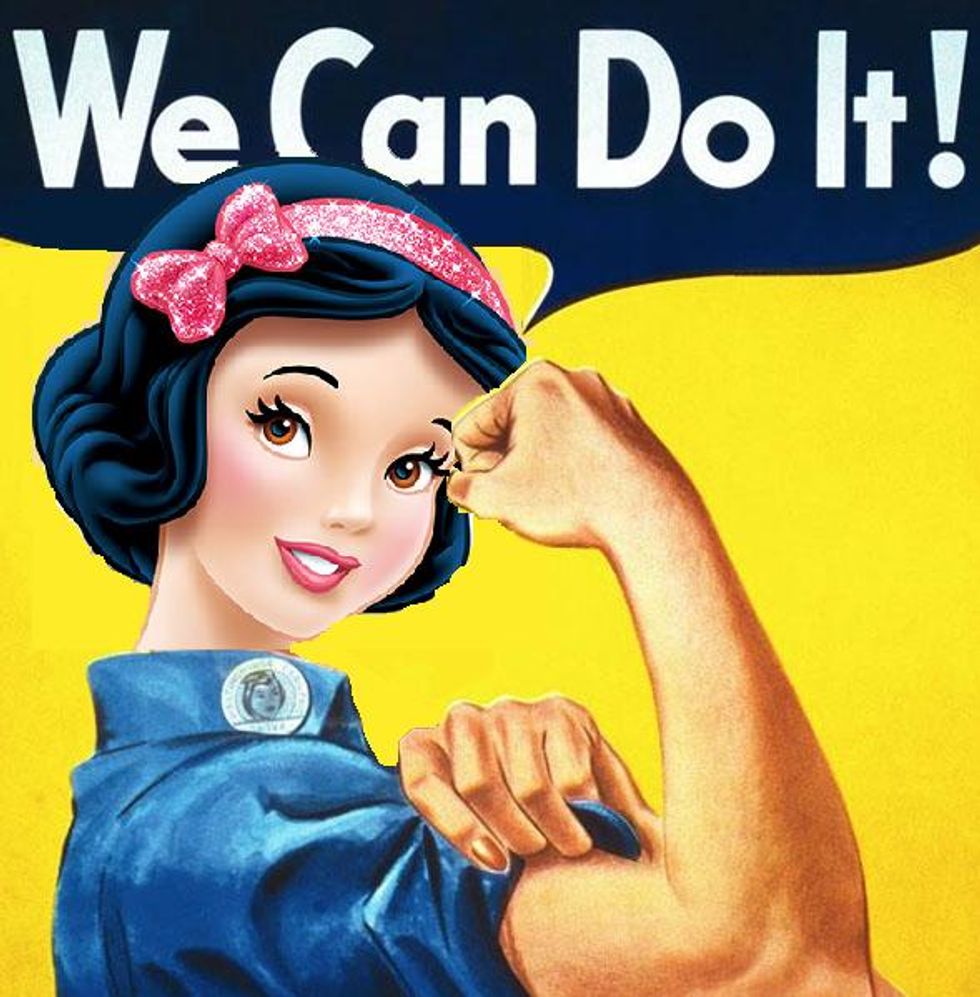Let’s talk feminism.
Recently, a friend on Facebook shared that she had been what she referred to as “Mommy shamed.” The offender bullied this friend for allowing her four-year-old to play with makeup, dance in costume, learn the words to Disney songs, and be awed by “fictitious princesses who further perpetuate the notion of dressing well and relying on a man.”
Thinking back to my own Disney-obsessed childhood (and current adulthood), I remember similar princess costumes. I remember the fantastical wonder of meeting characters at Walt Disney World, and I wonder, do Disney’s princesses merely perpetuate patriarchal systems? No. F*ck no.
Sure, Disney’s start was a little rocky, with characters like Cinderella and Aurora, who were forced to depend on men to escape dire situations. It didn’t take long for the princesses to gain independence, though. And by the way, guess what? It’s okay to rely on men, and other women, once in a while. If you’re trying to instill feminist ideals in your young one, that’s not the same as raising a man-hater (just sayin’).
After getting past the weaknesses of early princesses, Disney flourished, as Mulan challenges gender roles and physically fights for her family, saving the lives of hordes of men, including an emperor, in the process. She earns her own honor and respect, and she shows strength, even without a man by her side.
Pocahontas chooses her own path, forcing her elders to respect her female opinion. She saves John Smith, not the other way around, before forcing her tribe to see her view and accept him. In the end, she even parts ways with Smith, proving she doesn’t need to rely on a man.
Belle overcomes a judgmental society and isn’t afraid to be who she is, a bookworm. She values female intelligence and rejects the misogynistic Gaston. Esmeralda fights poverty and marginalization, while Tiana follows her dream of opening her own restaurant and gaining economic stability.
Queen Elsa rules without a man by her side, and puts family above all else, while Merida rejects an arranged marriage and challenges gender norms through her appearance and demeanor. And the most recent addition to Disney’s princesses, Moana, fights to save not only her family but her entire island, without the help of a prince. She even shows the egotistical demigod Maui that he needs her help.
These are just some of Disney’s feminist princesses. Each is independent and progressive, reshaping traditional perceptions of femininity and empowering young girls. All from different countries and ethnicities, the princesses show that race and background cannot restrict you. Regardless of your gender, you can fight your own battles and make a happy ending for yourself.
Why restrict a young, flourishing mind? Whether four or thirteen, let your children, if they wish, learn the words to Disney songs and be awestruck when meeting their favorite characters. A girl can take over the world and still look stylish while doing it, without being objectified or judged by the likes of internet trolls.
Raise your children to have strength and be kind. Teach them that they can be anyone they want to be as long as they set their mind to it. And, at four years old, if that happens to be a princess, then so be it.




















